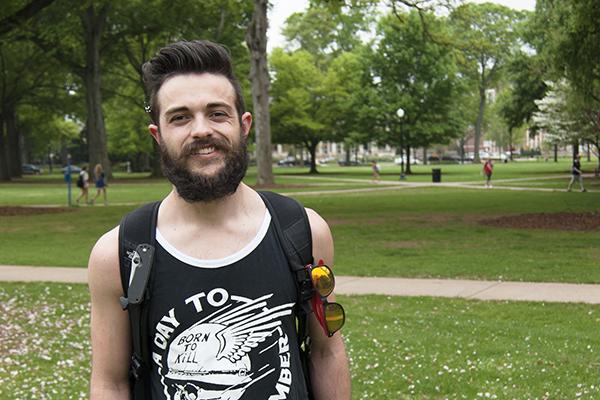At 7:30 a.m. many college students are still asleep.
At 7:30 a.m. many mornings last year, Scott Nagy was walking into a production meeting with the company’s professional engineering team. Nagy, an engineering student at the University, participates in a co-op with Tiffin Motor Homes.
Nagy, like many engineering students, was involved in a Cooperative Education Program, usually referred to as a “co-op,” which is an internship-like experience lasting three semesters.
Naomi Powell, director of the Cooperative Education and Professional Practice Programs at The University of Alabama, said co-ops are academic programs designed to integrate students’ studies with professional work experiences by partnering with businesses, industries and a variety of government agencies.
“Students alternate periods of full-time study with full-time paid, practical work experience related to their major or career interest,” she said.
Engineering students at the University begin the first work period either the summer or fall after their freshman year and are required to divide their three semesters over the span of a year and a half. Students spend the duration of their experience alternating semesters living on campus and at the site of their co-op.
“It’s like I have two different worlds, and one of them was put on pause for a year,” said Connor Lawson, a senior majoring in computer science. Lawson spent his sophomore and junior year doing a co-op for Adtran Incorporated in Huntsville.
Co-ops, like internships, serve as an immersion into the professional world.
For students like Lawson and Nagy, their days began around 7 a.m. or 8 a.m. and ended at 5 p.m. Both were expected to attend meetings, work on projects and interact with and learn from professional coworkers and supervisors.
“The co-op is a very structured lifestyle,” Lawson said. “You go to work from 8 a.m. to 5 p.m. and everybody you know does the same.”
Lawson, who worked alongside co-op students from other universities, would comply with a strict work schedule during the day but had allotted time for recreation during nights and weekends.
“That structure really gives you a lot of freedom, especially in the evenings, to do whatever you want,” Lawson said. “Once we got off at 5, everything else started.”
From organized Ultimate Frisbee games on Tuesdays and Thursdays, to “Fancy Cheese” nights and weekend parties, Lawson said he would not describe his time away from campus as a deprivation of a standard college experience, but rather a more enriched one.
“I definitely feel like I had as fulfilling of a college experience as I could have wanted, probably a better one because of the co-op,” Lawson said. “At Adtran the co-op culture was very strong. The guys I came in with were my best friends by the time I left after third term.”
Mackenzie Morris, a junior majoring in mechanical engineering, spent the duration of her co-op with Harley Davidson in York, Pennsylvania.
“They treat their co-op students like the rest of their engineers,” Morris said. “I felt like I was actually contributing to the company with the projects and testing that I did.”
Powell said the goal of a co-op program is for students to get a degree, get work experience in their major, and, upon graduation, get the job they want in their field of specialty, instead of settling for another job.
Unlike internships, which typically occur during the summer and are not always paid, co-ops are a commitment of working three alternating semesters, including pay, and, in most instances, housing.
For some co-op students, the adjustment of returning to campus after living on site at a co-op is not always an easy one.
“Coming back to campus was a difficult thing,” Lawson said. “The same group of friends were still there, but I was behind. I had to catch up with everything that had gone on and had to catch them up to where I was, too.”
Despite the detachment from campus life, by participating in co-ops, engineering students said they gained career-related experience by fully immersing into a professional atmosphere.
“It was as if I was already a full-time engineer working for them, even though I was only halfway through school,” Lawson said.
Students also earn competitive salaries to assist with education expenses, build a network of professionals in the field of study, increase employment opportunities and secure higher salaries upon graduation, Powell said.
Because of the alternating semester structure of the co-op program, students are delayed from graduation by a semester.
“The length of the program and delayed graduation are the downsides, but I can see why they do it,” Nagy said. “You gain more engineering knowledge with each passing semester, so every time you go back to your co-op you know more than you did before.”
Both Nagy and Morris were able to lead their own projects while working at their co-ops. Morris was presented an award from Harley Davidson for a project she developed.
“I was doing anything from shift inventory, excel spreadsheets, testing out new products and even leading a few of my own projects,” Nagy said.







